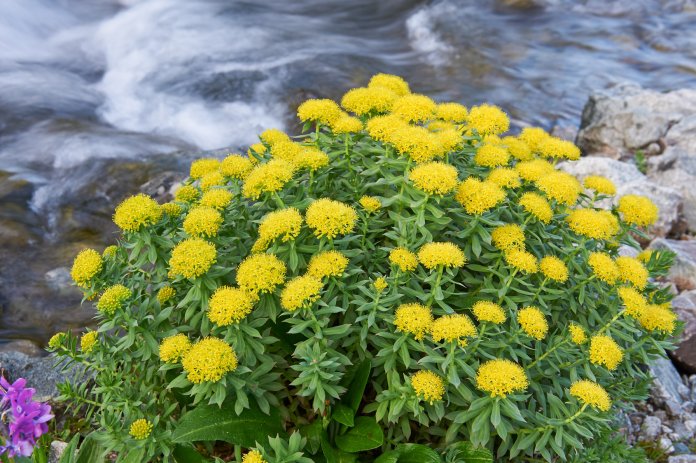
Plants have an amazing ability to survive, and thrive, in the most difficult of circumstances. Just think about it: plants can’t move around. They can’t grab a sweater if it’s too chilly. They can’t turn on the AC if it’s too hot. If they’re thirsty, they can’t simply walk into the kitchen to grab a drink: they have to wait for the rain, and sometimes, they have to wait a long time. Yet, they survive.
I live in Connecticut, where the winters are icy and unforgiving. The ground is completely frozen for months on end: it’s hard to imagine anything living below the surface. Yet, with the first whispers of spring, little green plants of all kinds come through the cold, hard ground, unphased by the long frost. It’s awesome in the true sense of the word to see this each and every year.
Plants have evolved this survival ability over a millennia of adverse conditions. Since they’ve always been rooted to the ground, they have had to find ways to adapt to their environments that involve weathering the storm, rather than seeking shelter. How do they do this? It’s all about chemistry. Although each individual plant has its own biochemical tricks, they all produce natural compounds to protect themselves. Herbalists are particularly fond of a group of plants that is especially good at surviving in adverse environmental conditions. These plants are known as “adaptogens” because of their unique ability to adapt to tough conditions.
The remarkable thing about adaptogenic plants is that the same compounds that these plants use to survive have been shown to help humans overcome stressors, as well. Now, the stress that we humans endure is, of course, quite different from the stress that plants endure. We are not rooted in place, unable to fetch a sweater or shield ourselves from a storm. However, we do all have to deal with stress: financial, social, relationship, and occupational stress are just a few examples. If we consume adaptogenic plants, the compounds found within can aid us in adapting to stress more effectively.
One example of a great adaptogenic plant is Rhodiola rosea, also known as the Arctic rose. This plant can help to improve mood, boost energy, and strengthen the immune system, especially if stress if a factor. Another highly beneficial adaptogen is Lepidium meyenii, better known as maca. The roots of this plant are commonly eaten as a food in South America. Maca can aid significantly with stress that relates to hormonal fluctuations, such as (but not limited to) those experienced when women undergo menopause.
Eleutherococcus senticosus, also known as Siberian ginseng, is another noteworthy adaptogen. Siberian ginseng is a gently stimulating plant that can help to boost energy, mood, and productivity. It is a very gentle and safe botanical, making it an ideal adaptogen choice for many people. This plant may also help to improve memory and focus, and may shorten the duration of a cold virus.
Just as environmental stress can destroy a plant that is not adequately adapted for it, stress can destroy us if left unchecked. Chronic stress can lead to inflammation throughout the body, and if this is not dealt with, a number of illnesses can take root. Just a few examples are autoimmune illnesses, heart disease, allergies, and cancers. Stress can also lead to a weakened immune system, making us susceptible to whatever seasonal bug comes along. For the sake of your health, managing your stress is paramount.
Embracing the benefits of adaptogenic plants is one way to help you to rise above the stress in your life. There are many adaptogens on our planet, all with their own specific benefits, but the three above-listed ones are a great place to start your search. Talking to your health professional about how these plants may work for you is a worthwhile conversation to have.
After all, these plants are able to survive the most trying of conditions. They can help us to overcome our stressful obstacles, too.
– Dr. Joshua Levitt

